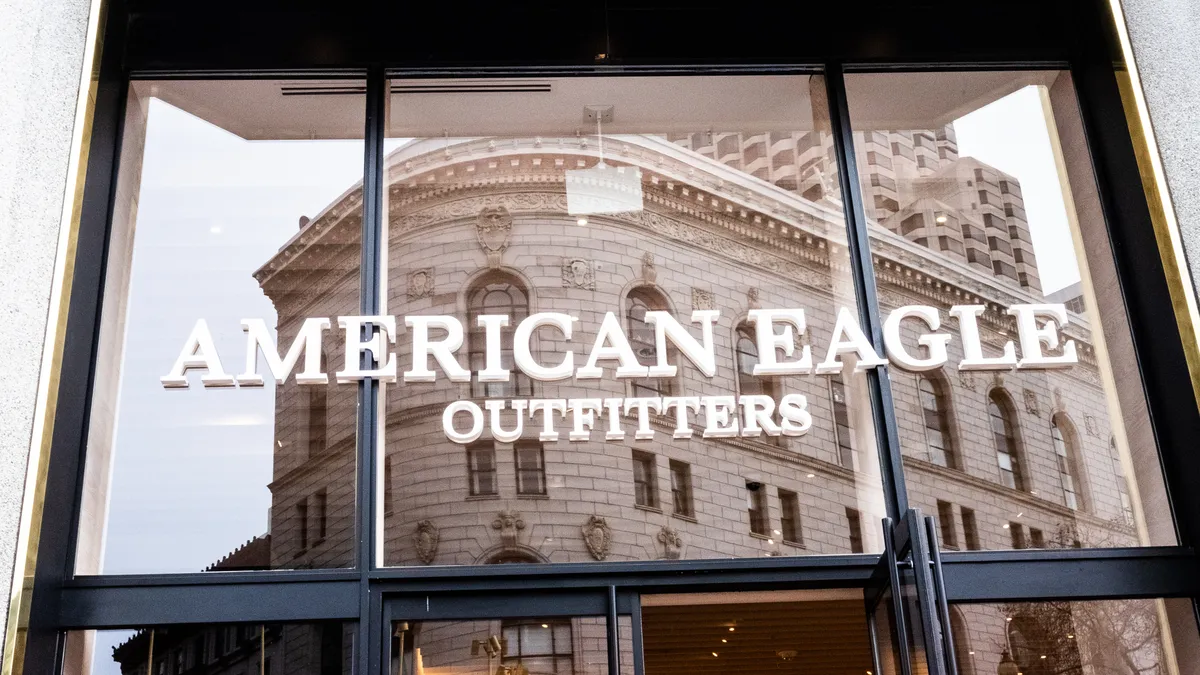Dive Brief:
-
Pent-up demand and rising store traffic helped push American Eagle Outfitters' second quarter net revenue up 35% year over year to $1.19 billion. By brand in the period, American Eagle revenue rose 35% to $846 million and Aerie revenue rose 34% to $336 million.
-
Store revenue rose 73% year over year, which helped push e-commerce down 5%, per a press release. Compared to 2019, store revenue rose 4% and digital rose 66%. Thanks to margin growth, the company swung to net income of $121.5 million from its year-ago $13.8 million loss.
-
On a call with analysts, the apparel retailer disclosed that it has bought e-commerce logistics provider AirTerra, and is looking to make more similar acquisitions.
Dive Insight:
American Eagle joins other retailers including Walmart, Target and Amazon in wresting power over its logistics by running some things itself.
"We realized we had to control as much as we can," CEO Jay Schottenstein said on the call.
Moreover, AirTerra will not only help smooth the supply chain for American Eagle, Aerie and the company's other brands, but also continue with its services to third parties, giving the company with a side revenue stream, executives also said.
Walmart last month said it will provide last-mile delivery for other businesses, after previously opening its omnichannel services to other businesses. In 2017, Target acquired white glove delivery company Shipt, which provides fulfillment and delivery nationwide for Target as well as other retailers.
So far this year, American Eagle has closed a net seven American Eagle stores and opened a net 17 Aerie stand-alone stores. Five Aerie side-by-side stores (featuring a connector to a namesake American Eagle store) have also opened this year, per its release.
While the retailer missed expectations for its topline in the quarter, margins helped stoke profit. Higher full-priced sales, lower promotions, inventory control and rent all contributed, the company said. Ending inventory in the quarter was up 20%, compared to a 21% decline a year ago. "Inventory was up across both brands, positioned in key Fall categories, yet remained below revenue growth, which is consistent with our focus on inventory optimization," the company said.
Gross margin expanded 1,210 basis points year over year to 42.1%, thanks to merchandise margin expansion across brands. In emailed comments Thursday, BMO Capital Markets Managing Director Simeon Siegel called the two-year 540 basis point expansion to the quarter's gross margin result "impressive."















